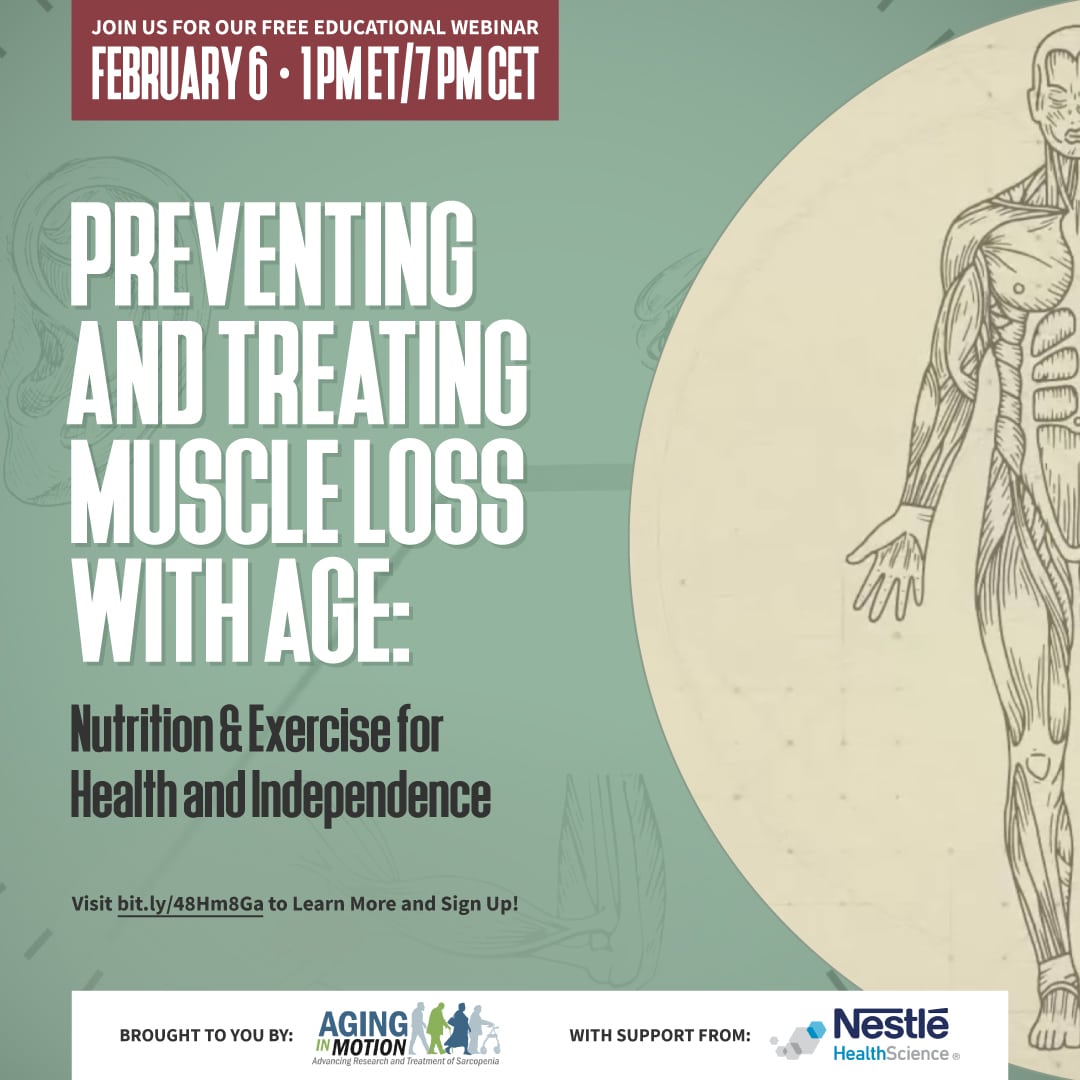
Among chronic diseases that affect older adults, sarcopenia has largely flown under the radar, both in medical circles and on the regulatory front. This is somewhat amazing considering this condition could affect up to 50 percent of older adults.
Sarcopenia is the progressive loss of skeletal muscle that comes with aging and can lead to discreased mobility, frailty, and ultimately loss of physical function and independence for older adults.
Advancing the developments of treatments for this condition is one of the Alliance’s primary goals. Our Aging in Motion Coalition works with the Food and Drug Administration, with the scientific community, the National Institutes of Health (NIH), the Food and Drug Administration (FDA), and Congressional policymakers to help improve functional strength and independence for a growing number of aging people.
To help you learn more about what’s been going on in the sarcopenia research space, we are linking you to an interview with Roger A. Fielding, Ph.D., director of the Nutrition, Exercise Physiology and Sarcopenia Laboratory (NEPS) at the Jean Mayer USDA Human Nutrition Research Center on Aging at Tufts University in Boston, Mass. Dr. Fielding has extensive knowledge into the condition.
“Depending on whom you talk to, there hasn’t been a lot of penetration thus far,” says Dr. Fielding, who is a member of AIM’s Science Advisory Board. “What is most surprising is that if you ask a lot of doctors, they don’t know about it.”
Even more sobering, older adults don’t know much about it either.
“Older patients need to know the problem they have getting up the stairs is because of loss of muscle,” he says. “They know about arthritis and high blood pressure, but they don’t know that loss of muscle function is not some normal consequence of aging.”
Not all is bad news, thankfully. Fielding says progress is being made on many fronts to advance research.
To read the entire interview, please go here.
To learn more about Dr. Fielding’s work at Tufts, please watch the video below:






